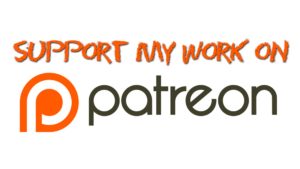Why Remediation Fails
Students that struggle unwittingly do two things that ensure they continue to struggle with concepts and procedures. Students can go to tutoring over and again, and sometimes it works, but it’s a long and frustrating journey.
I’ve fallen victim to these two habits myself, we all have. How students learn in school is not any different than how adults learn outside of school. Learning is identifying something that’s wrong and replacing it with something that is right, or at least more efficient.
It is the act of identifying something that is wrong that is the hitch here, the hold up. The first of the things students do when presented with remediation, that is review materials or a review of what went wrong before, is they morph what they’re seeing to fit what they know. Of course if they did that the other direction, things would be great. But that’s not how we learn.
It is imperative to recognize that we develop new learning by relating it to old knowledge. We don’t just replace all that we’ve developed over time with this new thing. Instead, we create connections between what’s already in our noggins and what is new. The more connections we have, the stronger the new learning is and the more quickly it happens.
Consider someone learning to cook. Say, they learned that Worcestershire sauce is yummy and delicious on steak. Some spills over into potatoes and that’s not too bad either. It’s not even unpleasant when it mixes with green beans or broccoli. With some experimentation we can learn that it’s good with chicken, rice and mushrooms.
What’s the thing we know? Worcestershire sauce makes things taste good. Not wrong, but not a very deep understanding, right?
Now let’s say this person want to make some desserts. Someone hands them some cream and tells them to whip it up, so it can top a pie. Why, they might ask. Well, to make the pie better, of course.
This whipped cream is new information, it’s something different than what they know. It’s fundamentally different than Worcestershire sauce. Yet, whipped cream is supposed to make food better, just like Worcestershire sauce does. So what students do, in effect, is say, oh, whipped cream is the same as Worcestershire sauce, and I’m used to Worcestershire, so let’s just use that instead. Same thing after all, right?
A similar thing happens when trying to train someone to use the computer. They know how to do a set of things and try to use those processes to manipulate this new software.
That is, instead of seeing the new protocol for interfacing with the software as completely new, they instead relate it to what they had done in the past. They fail to replace old knowledge with new. Instead, they see the new information as the same thing as what they already have at hand.
How do we, as teachers, combat that phenomenon? Well, we have to expose what they believe as fundamentally different than what’s right. We have to expose their misconception as being, well, a misconception that is not aligned with reality.
That’s a tricky thing to do, especially in math, for two reasons. The first reason is that often in math we are dealing with abstractions. We can’t have them taste Worcestershire topped cherry pie. The second reason, especially for math, is that when students see a procedure performed, they feel they understand if they believe they’re able to follow that procedure. (That is not that they are able to perform the procedure themselves.)
That second reason that it is tricky to expose misconception is the second thing that students do, they latch onto procedure. It makes them feel grounded, even if they are obviously off-base!
How many times has this happened? You, as the teacher, review a quiz question with students. They sit there, take notes as you work through a problem. They all exclaim they can’t believe how dumb they are, how could they have missed that? They get it now, right?
No. They don’t. They followed what you did, you doing all of the thinking along the way. A large percentage of students will be no better off than before the review. In some ways, some will be worse because they’ll now think they understand. Before the review, they just knew they were wrong, probably had no idea why.
What can we do?
This is a tricky thing to answer, dependent on too many variables to articulate a clean protocol. However, I think I have some ideas that will help in general.
First, when developing a review lesson, test or quiz review, or remediation lesson, you need to have students confront some mistakes. Maybe they need to try a problem and get it wrong.
Once the misconception is exposed, address why it’s wrong, what’s wrong with it. Don’t discuss what is right immediately, they’ll translate that to fit what they believe (and that is wrong). Expose why the misconception is in fact wrong, on a fundamental level.
Next, if possible, arrive at the right conclusion without process or procedure. Is there a way to think through the conception at play and arrive at what is right? If so, that’s beautiful.
The last thing is that this new learning will be soft in their heads, a fragile thing. They need to make a record of what they’ve learned, in their own writing, preferably on the old quiz or next to the thing they used to believe was true. It’ll be a reminder, because they’ll go for that Worcestershire sauce again when they shouldn’t! Old habits, they die hard!
I tried something along these lines in a video I prepared for a remedial math class at a community college. The topic is fractions. I tried to show how common denominators work without treating them like they were stupid, because they’re not, they just never had to learn fractions, and tried to do so without use of a process.
As I explored the inner workings, and why various things were wrong, I began describing what needed to be done, but the focus was conceptual. The video is posted here at the end of this article.
This is a topic I hope to explore more in detail, how to help promote the efficacy of remediation and tutoring. I am working on some experiments I’d like to try to determine more closely the behind the scenes workings here. Until that time, thank you for reading, thank you for your time.
Philip Brown




I totally agree with the frustration that comes with tutoring, especially remedial tutoring. Tutoring is a great benefit for the student who misses a week of school and who wants to catch up. The u-tube is on fractions. I believe many people will NEVER understand fractions. That is why we have decimals. Our calculators are primarily working with decimals. The U.S. coinage is aligned with the decimal system. As for dividing by fractions, my old math teacher used to say: “Shut up and do the math! Invert the denominator and multiply!”